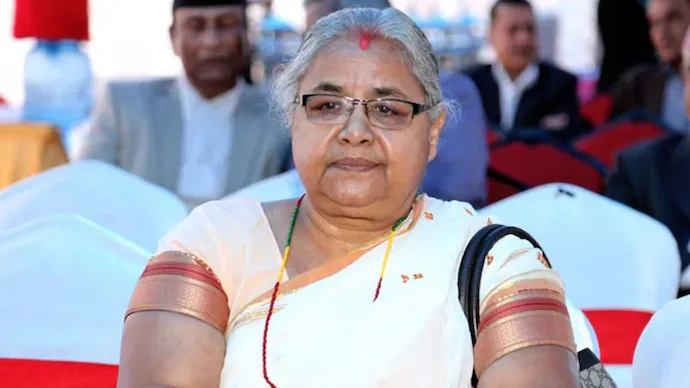
Fearless Jurist to Premier
A new era in Nepali leadership dawned Friday as Sushila Karki etched another historic milestone, becoming the nation's first female Prime Minister. Her swearing-in at Sheetal Niwas, alongside President Ramchandra Paudel, marked a profound moment of historical symmetry. Fifty-five years earlier, Paudel himself had presided over her induction into the Nepal Student Union.
Karki, a fearless jurist, rose from humble origins to become a beacon of principled justice and advocacy. Born on June 8, 1952, to Dillibahadur and Liladevi Karki, her father began her education by teaching her the alphabet. A determined pursuit of knowledge propelled her journey from Biratnagar to Kirtpur.
After her primary schooling at Janata School, she achieved her SLC in 1968, followed by a BA from Mahendra Morang Campus, an MA in Political Science from India, and a Bachelor of Laws from Tribhuvan University.
Karki’s leadership qualities surfaced during her student days. She mounted a courageous campaign for student union office in 1968. Her subsequent activism with the Nepal Student Union sharpened her political acumen, forging a formidable character. But justice, not politics, was her true calling.
She launched a legal career in 1978, honing her craft at the renowned Toran Bahadur Karki’s law firm. For over three decades in Dharan, she cultivated a sterling reputation as a successful advocate, assuming leadership of the Nepal Bar Association and the Appellate Court Bar in Biratnagar. In 2004, she gained the designation of Senior Advocate, cementing a legacy of struggle and integrity.
In January 2009, she ascended to the Supreme Court as a Justice. Her judicial journey accelerated. She served as Acting Chief Justice from March 13, 2016, to July 9, 2017, before shattering the ultimate glass ceiling on July 11, 2017, as Nepal’s first female Chief Justice.
Karki's tenure, however, faced severe tests. An impeachment motion registered in Parliament on April 30, 2017, shook the judiciary's foundations, widely condemned as vindictive political retaliation. Restored to her position by a Supreme Court order, Karki exemplified resilience and courage. When Parliament withdrew the motion on June 6, she emerged victorious, cementing her stature as a fearless leader who defended justice and the constitution.
Her landmark verdicts stand as monumental pillars of Nepal’s legal history. Her rulings on the Sudan scam, the JP Gupta corruption case, the Police Inspector General appointment controversy, the recognition of a third gender on citizenship documents, the Lokman Singh Karki dismissal, and the Godavari Marble and womb-renting cases redefined justice, making it public-centric and equality-based.
Beyond the courtroom, Karki’s intellect thrived on ideas and creation. She pursued vigorous study and writing alongside her legal and judicial practice. Her family life with her husband, Congress leader Durga Prasad Subedi, and their son, Prashant, provided a constant source of strength.
Sushila Karki’s journey proves Nepali women possess the merit to conquer the highest peaks. Her struggle and achievements inspire not only every Nepali woman but every champion of justice and equality. Those closest to her affirm her unwavering principles and resolve. In court, she granted no undeserved leniency; in private, she radiated humility and warmth. She pioneers a path for women, serving as a fountainhead of inspiration for every female legal professional.
Her legendary fortitude against the impeachment attempt remains a powerful symbol. When political power tried to bend the court to its will, she stood firm, an assault that ultimately elevated her stature in the public consciousness to unparalleled heights. Her integrity, courage, and fearlessness remain her hallmarks.